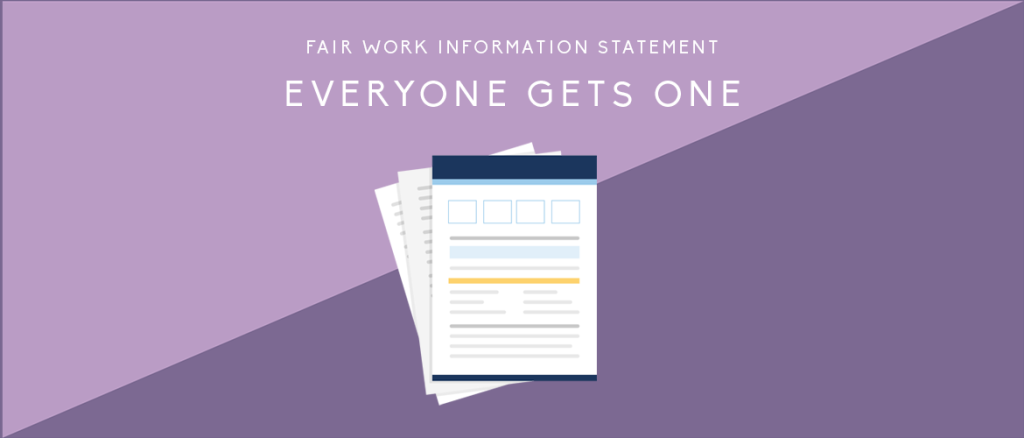Which of the Three Fair Work Information Statements do you need to give to your employees? One or all three?
Once upon a time, there was only one Fair Work Information Statement (FWIS). But now there are three of them! As an employer, you need to know which one to give to your employees. This could be only one depending on your employment situation, or all three. But before we look at the three statements, let’s quickly revisit the background of the FWIS for those who may not be across it.
The FWIS provides information to new employees about the conditions of their employment, including details about the National Employment Standards. The FWIS must be given to new employees before or as soon as they begin working for you.

3 Fair Work Statements
As mentioned above, there are now three statements. Let’s look at each one separately.
1. The Fair Work Information Statement. This is the most well-known statement as it has been around for some time now. The FWIS has information on:
- the National Employment Standards
- right to request flexible working arrangements
- modern awards
- making agreements under the Fair Work Act 2009
- individual flexibility arrangements
- freedom of association and workplace rights (general protections)
- termination of employment
- right of entry
- the role of the Fair Work Ombudsman and the Fair Work Commission.
2. The Casual Employment Information Statement. The CEIS has information about:
- the definition of a casual employee
- when an employer has to offer casual conversion
- when an employer doesn’t have to offer casual conversion
- when a casual employee can request casual conversion
- casual conversion entitlements of casual employees employed by small business employers
- the role of the Fair Work Commission is to deal with disputes about casual conversion.
Employers aren’t required to give casual employees the CEIS more than once in any given 12-month period (for example, if an employer employs a casual employee temporarily at different stages in one 12-month period, they only need to give them the CEIS once. However, it should be noted that large employers (15 or more employees) must give the CEIS to employees every 6 months. Still, small employers (15 or fewer employees) must provide the CEIS every 12 months on the anniversary of each employee’s start date.
3. The Fixed Term Contract Information Statement. The FTCIS has information about:
- what a fixed-term contract is
- limitations on the use of fixed-term contracts
- exceptions to the limitations
- how to resolve disputes about fixed-term contract limitations and exceptions.
How to Give these Statements to your Employees
Fair Work states that you may provide these statements in a variety of ways:
- in person
- by mail
- by email
- by emailing a link to this page of their website
- by emailing a link to a copy of the FWIS available on the employer’s intranet
Depending on the employment status of your employees, you may need to provide the FWIS only. However, if you employ a mix of employees i.e. full-time, part-time, casual, and/or fixed-term contract, it may be necessary to provide all three statements as described above. Remember, providing the FWISs is not optional – it is compulsory. Failure to do so may incur penalties – see here.



